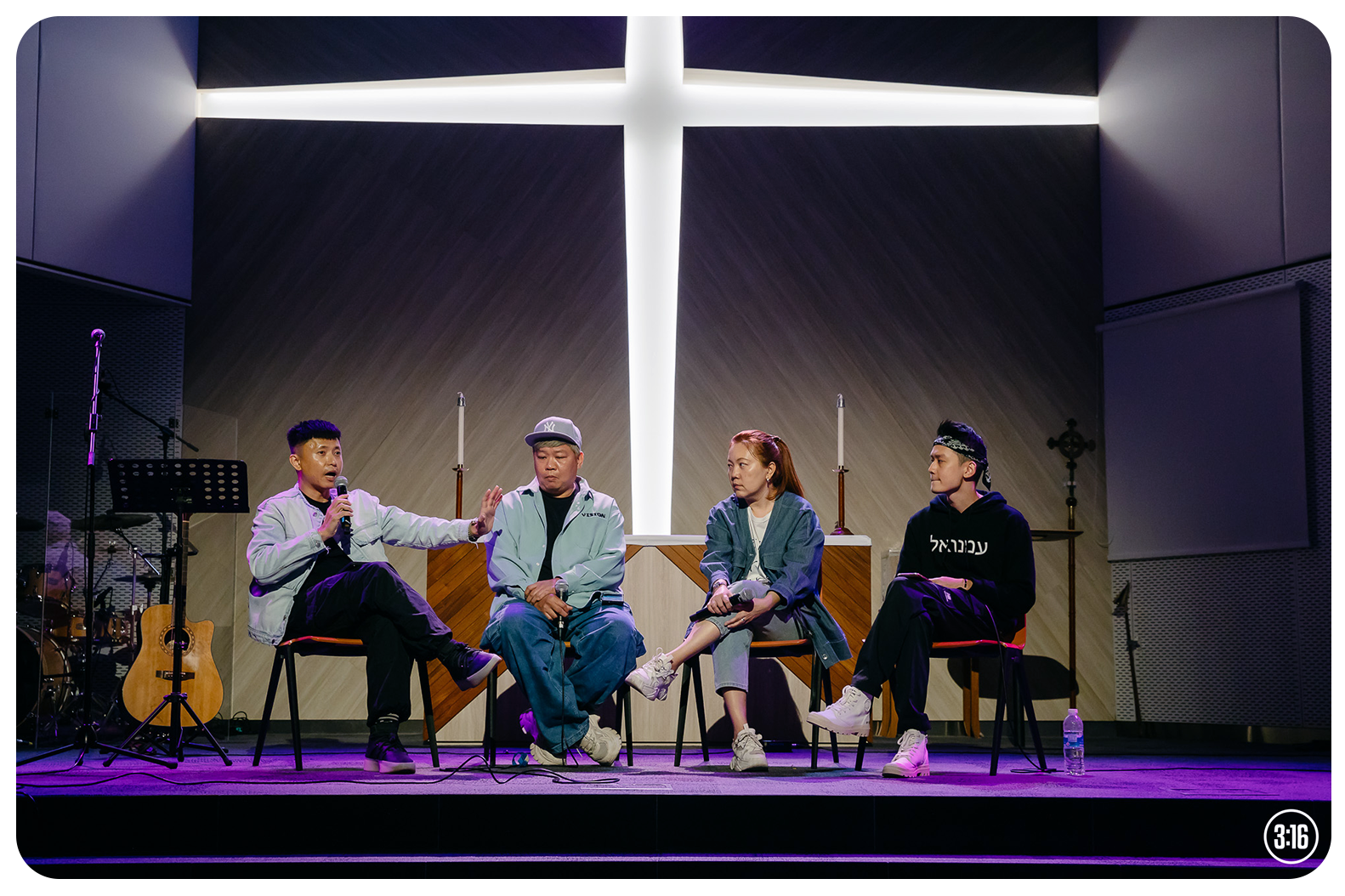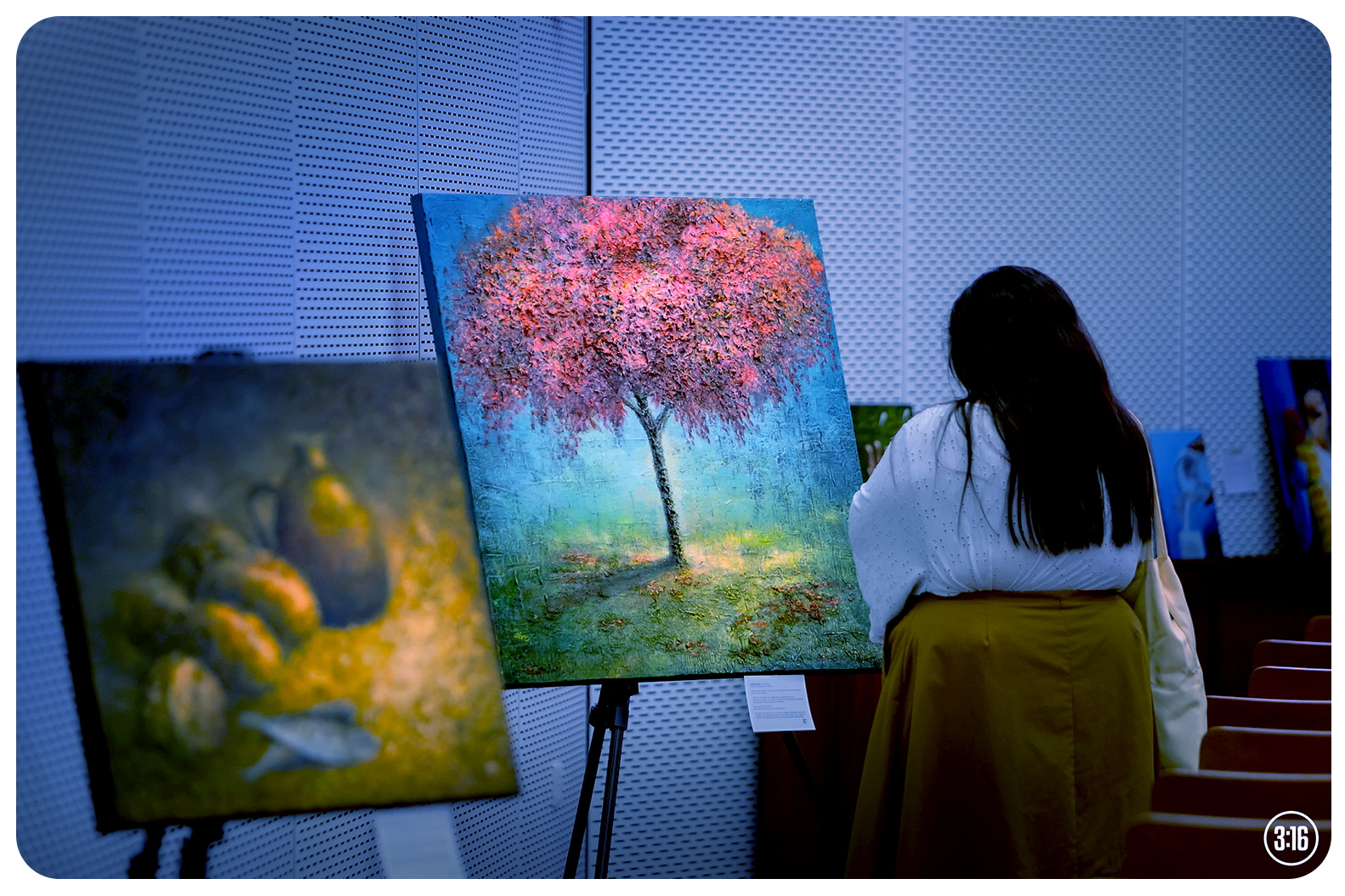X4 Creative Conference’s masterclass series saw a panel comprising of Christian artists and creative evangelists discussing new ways Christianity can be creatively expressed and fresh formats for sharing the Gospel.
Led by moderator Pastor NORMAN NG (3:16 Church), Christian artist PATRICK BEZALEL, his wife LILY CHIA (whose latest focus is on fleshing out biblical places in Minecraft!), and online evangelist DAVID LOH discussed what fresh ways to evangelise and glorify God may look like.
How have you seen the Gospel advance outside of traditional church methods?
DAVID: Traditionally, we hear from preachers on Sundays. We walk through the church doors and wait for the Word of God.
But with the advent of social media, we can preach the Word – and the message stays online for eternity. There can be a service happening on my Instagram page for eternity if someone just walks into my “social media church”. When you put something on social media, it has an everlasting shelf life!
So as I put out content to preach the Gospel on Instagram, where I do more overt preaching and evangelism, there’ll be people telling me that my content spoke to them.
Indeed, a few years ago on Chinese New Year’s Eve, I had a non-Christian friend reach out to me, saying, “David, I watched all your Instagram content – and I’m attending church now.”

There was also a young lady who once tried to end her life and ended up in the hospital. Since she survived, she told God that she would give Him one last chance, and she started searching online for churches to attend.
She felt it was very scary for a non-Christian to step into a church alone, so she scrolled TikTok instead and found my page. She was very intrigued by our content and thought it was “wholesome”.
Eventually, she reached out to my wife, Esther. She asked for help, saying that she wanted to give God another chance.
There are many more stories like this. As I put out content, I can be going on with my own life and doing my own things, but the content is ministering to someone.
That’s the beauty of social media – we can break out of the traditional way of sharing the Gospel in a physical setting, and reach the nations from the comfort of our own homes. To me, that’s very fun and exciting.
Can you share more about your work in Minecraft with “Land of Promise”?
LILY: I felt God telling me to step out from my agency and we started Land of Promise in 2020. It was a time when crypto, blockchain and NFTs were at their peak.
The key thing is that we’ve always been serving in youth ministry and loving young people. So, when I started observing that many young people were in this metaspace, I knew that it was going to be the future and I started figuring it out.
One day, I was having a conversation with a 19-year-old NSF, and I asked him about crypto and metaspace.
He replied, “How did you know? No adults in church talk about this.”
I was one of those adults. But what I realised was this: how can we disciple the next generation if they’re not telling us anything?

I started talking to God about that.
And as time went on, I learned that young people were collecting images of Satan (NFTs) and other things like that. Mark Zuckerberg also started talking about the Metaverse around that time.
So, I was driving one day and I suddenly felt God drop this sentence into my heart: “Put my verse into the meta.” I was surprised because I didn’t know what we could bring into this space.
But since then, God has been leading us one step at a time into the virtual space, with NFTs and then with Minecraft. We had no idea what we were doing, we were just following God.
I really agreed with what my pastor said when we started these things. He told me that what was in my heart was not a project, but the desire to carry what is in God’s heart.
And I believe that God is calling us to go into this space and prepare ourselves to connect with the next generation.
How do we go into spaces that are perhaps darker in nature, and overcome the fear of entering such a space?
LILY: To be real, I don’t think I ever really got past that fear. But I think the key thing is to remember the story of Joshua. Why do you think God kept telling him “do not fear”?
I believe it is because Joshua was scared to step into the Promised Land. We’re scared, we’re just humans, and all our fears are very real.
But whenever I feel the spirit of fear, I will pray for the spirit of courage. I will go into the quiet place with the Lord, and ask Him to help me see and have faith.
The Lord would always remind me, “What are you scared of? Am I not your God? Is anything too hard for me?” God is so loving and merciful, and He always meets me where I am.

PATRICK: As we were thinking about the darkness in the metaspace, the Lord also reminded us that a torchlight is useless in the day. We are called to be light in the world, and we should be shining a light in the darkness.
That is why we found it important to enter the metaspace even though it could seem dark to many.
How do you show godly principles through your art without directly talking about Christ? How do you weave godly principles and prophecy into what you do?
PATRICK: Two words: beauty and excellence.
Many of us try to share the Gospel through an image that is inspired by the Word, and that is the right way. But I also feel that in order to reach out to people and have a good balance, we need to have beauty and excellence in what we do. These are the two things that the world cannot reject.
What Pastor Edric talked about earlier is the essence here: when we do things beautifully and excellently, it will speak to all people.
Isaac was also talking about the “cheat code” – how we can get our ideas from the Bible. If we know how to use that correctly, we will find that all the things we create are different, special and anointed.
Christian art doesn’t have to be very outright and in your face. When it’s beautifully and excellently done, people will be drawn to it, and they will be open to listening and hearing what your inspiration is.
From there, you can share the Gospel. Nobody knows you are sowing the seed of the Bible, but they are just open to it because it is beautifully and excellently done.

How do you separate the spirit of performance from the desire to evangelise for God, especially when it comes to digital evangelism?
DAVID: This question hits at the heart. The most difficult thing for me when it comes to social media is to resist the urge to “grow the numbers”.
I know that there is certain content that I can post which will surely get thousands of views because I understand how social media works.
But the most difficult thing is to keep a pure heart and only post for the sake of love and evangelism.

There are two principles I would suggest. The first is what Edric shared earlier about examining your heart. Resist the temptation to do something just for the numbers. It’s okay if you want to get the numbers, but you must know why. If it’s just for me to feel good, then I will resist the urge to post it.
Three weeks ago, I was telling Esther that I had gained quite a bit of momentum on my Instagram and had quite a few videos go viral.
I told her about a certain video idea I had which I knew would definitely go viral. But I also knew that I would be doing it out of an unclean heart and vanity, so I refused to do so.
The Lord was testing my heart. There are some things that when you understand the game and have the skills to play it – you can get the numbers.
If your intention is pure in going wide so that people will see the Gospel and be inspired, that’s great and you should go for it.
But it wasn’t always that way for me. So I need to resist the urge to do something for vanity and examine my heart.
Resist the temptation to do something just for the numbers.
The second thing is to preach with one person in mind.
For example, I think of a specific youth who might be helpless or going through abuse. When I preach, I keep that youth in mind and pray that whatever I speak, the message will be one of love to them.
How do you deal with the hate and criticism?
DAVID: I think it’s normal to get hate comments and persecution because the Bible talks about that; 2 Timothy 3:12 tells us that those who desire to live a godly life in Christ Jesus must face persecution.
So, I think it’s good when we get persecuted for the right reasons, because it means my faith is active and I am being a witness to Christ.
I’ve faced quite a fair share of hate comments, and that’s natural when you preach the Gospel openly.
Honestly, I can get affected when I pay more attention to hate. The more I give attention to a comment, the more I’m giving my affection to what people think of me. So to me, when hate comments come, I don’t really deal with it.
Yet, at the same time, I am under submission to leadership. I’ll ask Pastor Norman if any of my responses are prideful, and I ask someone to check me. I also tell people to keep me in prayer when I receive hate comments, and ask them if there’s anything that I can do better.
Do you think everyone should use their social media accounts to share the Gospel like you do?
DAVID: No. It’s not about turning your whole page into Christian content. I think it’s just about being open about your faith.
For example, if you like going to the gym, you can post your gym photos and post about Physical 100… But if faith is part of your life, then be open about that as well.
Many people are just too shy to share about their faith. But it doesn’t really need to be preaching and everything, just be open about your life and story.
Your story is an invitation to God’s story.
John 4 has the story of the woman at the well – the Bible said that many came to Jesus because of the words of the woman, and many more stuck around to hear the words of Jesus.
Your story is an invitation to God’s story. To share your story doesn’t mean you need to post “full-on Christian” like I do, but it’s just being open about your faith and testimony.
Even if you’re struggling with something, wrestling with God – it’s also very beautiful to put it online if you feel comfortable.
That’s raw and real faith, and I think it can inspire many others.









